Intro
If You are not a Senior but you have family or close friends that are, this article is for you too.

I am sure that this “Lockdown” caught many of us unawares and unprepared. 3 Or 4 days warning was hardly enough time to prepare ourselves for an extended lockdown.
One thing is for sure if we were not “preppers” before this, we are probably looking at the idea of prepping with a more realistic eye now. If we thought of them as “those People” with tinfoil hats, we are definitely looking at their preparations in a different light now.
If the looting and xenophobic attacks get much worse, we had better be prepared and, prepping is not a five mine trip to the store. It takes a lot of thought and planning to ensure that you prepare properly.
An Overview Of What You Need To Do
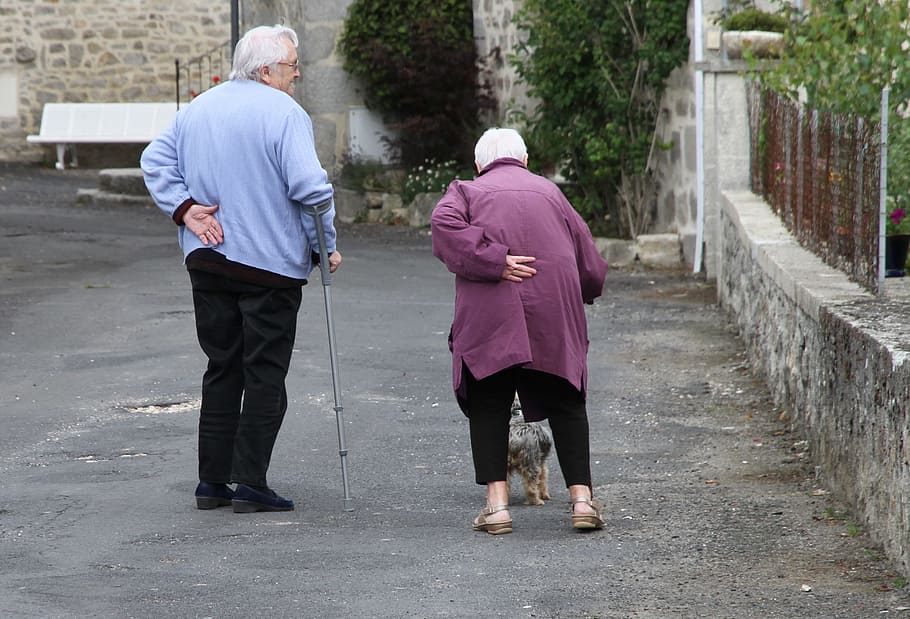
To start with, not all of our circumstances are the same. Many of us are not as mobile as we were and will need assistance. That is where our family, friends and caregivers come in. You really need to sit down and plan this together, especially if you do not live with the person that you will be relying on.
There are many things that need to be planned, prepared and practised during this preparation period and, especially if you are not so mobile anymore, it will take some assistance.
This list is not meant as a be-all and end-all solution. It is a guide and you really need to sit and evaluate your circumstances and “tweak” it to best suit your needs. If you need help, please feel free to comment in the comment section below and I will respond.
Prep Now
We have now all seen how unexpectedly circumstances can change and there are a number of issues in South Africa that could clearly catch us out again. Let’s just look at a few:
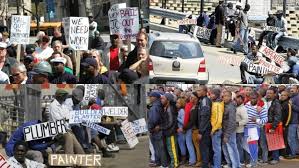
- Eskom – There is a very real threat of a blackout as the ageing, under-maintained infrastructure is pushed beyond its limits to try and provide sufficient power. No Power, no Fuel, no traffic control, no food deliveries, no water, no sewage and the list goes on.
- Unemployment – With the thousands of small & medium businesses, one-man bands and even large businesses like Edcon closing their doors, hundreds of thousands of people are going to have not income.
- Hunger – With every worker supporting an average of 10 people, millions will be starving and will raid, steal and pillage to get food for their families.
Two Options
i. Bug In or ii. Bug Out
i. Bugging In
Bugging is seen as the easiest. Everything will be right there,
- food,
- toilets,
- water,
- stove etc.
You can barricade yourself in, there are telephones, emergency services and more, or will there be?
A Plan
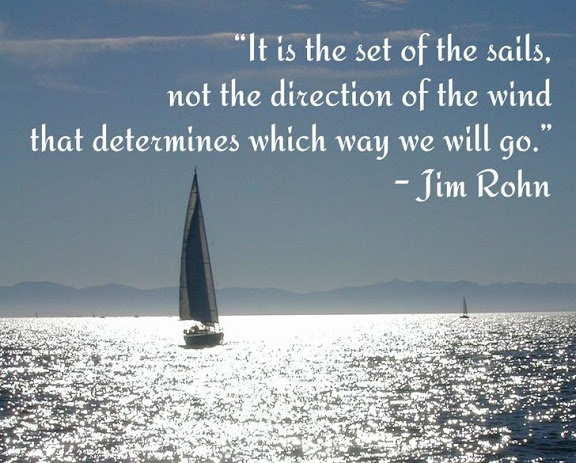
You will need to plan what you are going to need and do in each possible scenario, such as the ones sketched above. My concern about bugging in is that will you have enough food and water to last for extended periods?
What happens when the power is cut, water runs out, no fuel for generators, food stocks run low? It is then too late to flee but, that is just my opinion.
If you do plan to Bug In, you need to look at the following:
Water
You will need approx. 3 litres of water per person per day. As long as the water is flowing and it is clean, there is no problem but you had better have some means of purifying water just in case. I would also advise Boiling All Water and installing some storage tanks. If you have a swimming pool, you are relatively sorted for a while.
Food
Food is easier to store when bugging in as you do not have to carry it or find a place for it in a car or trailer. This makes tinned & bottled food acceptable. Even frozen food will be fine while the power is on. You just need to ensure that you have enough food, especially tinned and dried foods.

Flashlight
This only becomes a necessity once the power is off although, I would try not to use the lights at night as it draws attention to your property. I would go as far as suggesting shutters or dark curtains over your windows. A good stock of batteries would also be advisable.
Battery Radio
While the power is still working, your TV and your Electric radios will work fine. Your cellphone has a built-in FM Radio. all you need is a means to keep it charged.
First Aid Kit
This is important and you should spend some time researching what you will need and acquire it. there are plenty of posts that deal with first aid kits written by experts.
Chronic Meds
This is an area of concern. Will chemists be open and will they have your medication? If you can, build up a supply of your chronic meds and just keep rotating them. an issue is medicines like insulin, that must be refrigerated and has an expiry date.
Sanitation & Personal Hygiene

Make a list of all your sanitary and hygiene needs and ensure that you stock up on all your personal needs.
Copies Of Personal Documents
Make copies of all your personal and legal documents, Id, Passport, Birth Certificate, Training certificates and qualifications, Last will and testament, Vehicle papers, title deeds etc. Keep these separate from the originals
Cell Phone
Even when the towers are no longer working, these are valuable tools if you can keep them charged. they have FM radios, Maps, torches and games… don’t discard them. I will deal with charging them later.
Emergency Numbers and Family Contact Details
Keep a list of Phone numbers in a prominent and accessible place and let everyone know where they are. Each person should have their own list close at hand.
Solar panel with Controller and Battery
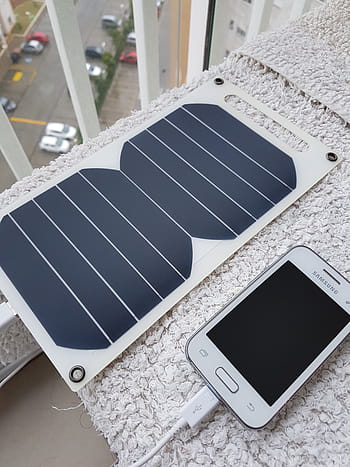
Don’t overlook or right off this equipment. You can buy small 10watt solar panels for R300, controllers for about R280 and batteries for about R300. This is sufficient to charge your solar panel, rechargeable lights and your battery during the day. The controllers have 2 Places for 2 USB cables to charge phones, lights etc. These will keep your small emergency appliances charged.
If you have a number of phones and torches etc. to be charged, buy two or three of the smaller solar panels. If one packs up or is damaged, you still have the others. If you only buy a larger panel, if it packs up or is broken you have nothing and they are more difficult to carry if you eventually have to bug out.
Money Cash (Notes & Coins)
Cash will be king for a while and if the bank auto tellers don’t work you are up the creak without a paddle. Carry cash (not openly) for ease of trading while it is worth something.
Whistle
Keep a whistle on you at all times so that you can summons help or warn others in an emergency
Pet Food
If you have pets, plan for them or they will end up eating your food.
Tools
Make a small toolbox and fill it with tools like:
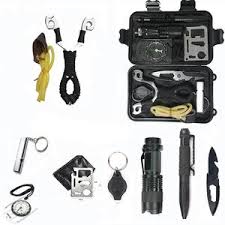
- multi-tool
- pliers
- screwdriver
- small saw
- insulation tape
- duct tape
- electrical wire
- spare globes for your vehicle.
ii. Bugging Out On Foot/Vehicle
On Foot
A Plan
For a lot of Seniors, this will not be an option on their own. This is where the family or friends come in. You need to sit together with them and plan for this eventuality. Things like where they will meet you, where will your essentials be kept, things like walking sticks, crutches, wheelchairs, chronic meds and personal hygiene goods.
All this needs to be planned as plans need to be made for their families too and you might be very limited with what you can take with you. Make sure it is the essentials and not “nice to haves“.
Bag/Backpack
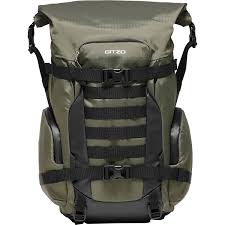
For more on your backpack and what should go in it, you can follow this link. You will need to include your personal items with, like chronic meds and personal hygiene items. Remember, Watch the weight! You have to carry it. No tinned foods, only dry foods etc.
By Vehicle
Travelling by vehicle is far more advantageous than on foot. You can load more and you will use less water and food as you will arrive at your destination sooner. You will, however, need to allow space for extra fuel. You don’t want to run dry and find no fuel at the fuel station. You need to have enough to travel at least double the distance that you expect to travel.
The reason for the extra fuel is that you will have to assess the situation as you travel and this might require a lot of back-tracking and detours. Better to be safe than sorry.
There are a few extra considerations to take care of if travelling by vehicle, and they are:
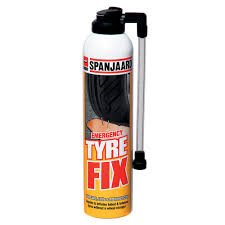
- Spares – Fan Belt, oil, puncture kit, spark plugs, spare globes, water etc.
- Covering the light with tape to leave small slits to just illuminate the road directly ahead of you. this makes it more difficult for people to track you.
- Packing the vehicle – finding space for it all
- Routes – Plan the route to avoid Locations and squatter camps. You will find this extremely difficult but do the best you can.
- 5th Tyre puncture repair cans for temp puncture repairs
- Electric tyre pump to inflate tyres.
- Torch and batteries
- Jack
- Tyre Leaver and spanner
- Spare tyre in good condition.
Trailers/Caravans
If you are towing a trailer or caravan, remember:
- fuel consumption will be a lot heavier
- It will be more difficult to travel on gravel roads
- It will be difficult to make U-Turns and emergency stops
- Speed will be a lot less so you will take longer to get to your destination
- carry spares for the trailer and caravan too
- You will have more space to pack stores for transport
Joining A Group
Consider joining a group of preppers. There are a lot of them and you must carry out your own due diligence. For more on joining groups read here
Joining a Neighbourhood Watch

There are huge benefits becoming an active member of the local community watch group. They usually have radio communications and you can purchase a radio and have it programmed to the Community Watch frequency. In this way, you can keep up to date even if the cell coms are down.
These groups also have patrols and response teams in the area and they monitor the situation 24/7. This will surely give you an early warning if trouble is brewing.
By joining the group, you will also be likely to meet people in your neighbourhood and get to hear of the different groups and plans for emergencies. This will also give you options.
Senior Living and Assisted Living Communities
If you live in a Senior living or Assisted Living Community, find out from management about the disaster plan. They should already have one in place so all you need to do is to know its ins and outs.
If there is no plan, discuss with them starting one. If there is a lack of skill, approach your local police or community watch group for assistance. Someone must take the initiative to develop a plan. It is in your best interest.
Emotional Distress During Disasters
Disasters definitely cause emotional distress, especially if you are unprepared. Now I am not saying that you will not feel anxious if you have prepped but the chances are that you will stress less for having prepped. You will know you have options and what they are and you will know what to do next.
Some Typical Physical Reactions That You Might Experience
- Headaches
- Stomach pain
- Intensifying of chronic conditions like High blood pressure, diabetes & arthritis

Typical Emotional Reactions
- Sadness
- Depression
- Irritability
- Anger
Some Typical Mental/Spiritual Experiences
- Indecision
- Lack of focus
- Confusion
- Forgetfulness
- Disorientation
- Anger Towards God
- Increased Prayer
- Questioning the reasons for the disaster
- Need for consoling by spiritual leaders
Some times a disaster will just seem like the final straw…the end. You look back and relive the old experiences. Try and separate the old from the current experiences.
If you look back to other difficult times in your life and recall how you got through them, you might find some motivation and strength. Remind yourself that you coped before and you can do it again.
These emotional and other kinds of responses are to be expected and its is okay. Keep a positive attitude and help spread that attitude. Don’t be scared to ask for help and offer help to others. Mutual concern will build motivation and trust.

Remember, You Have A Plan
Once you have a plan and put it in place, you will be able to cope with most of the issues that are thrown your way. You have planned for it, you have stocked up on all the essentials, you know what to do next. Trust in yourself and your plan. Create a cheat card to help you remember the different stages and activities. Don’t Panic! Stop breath, read the card and continue.
Your Call To Action – Start Prepping
It is better to prepare and never need it than not to prepare and need it. With luck, in 5 years we can sit around a braai with a cold one and laugh at our preparations that we never needed or be thankful that we did prepare when we had the chance. Start now! Here is how!
Please leave a comment below. I really appreciate your thoughts on the subjects I cover. If you have any questions, please ask them here.

“It is better to have prepared and never to need it than to be unprepared and be in desperate need of it”.
Be Aware. Be Safe. Be Prepared!

